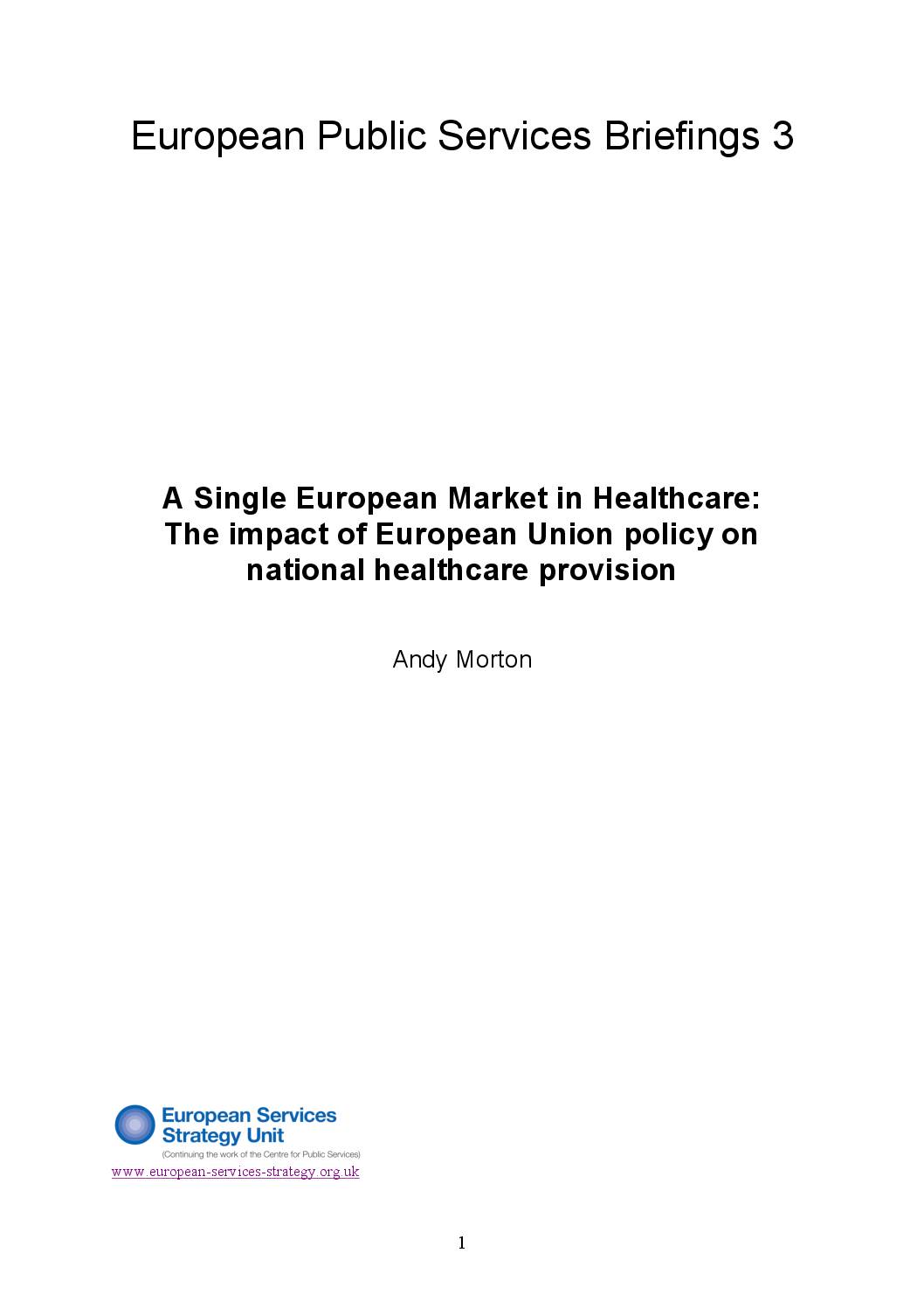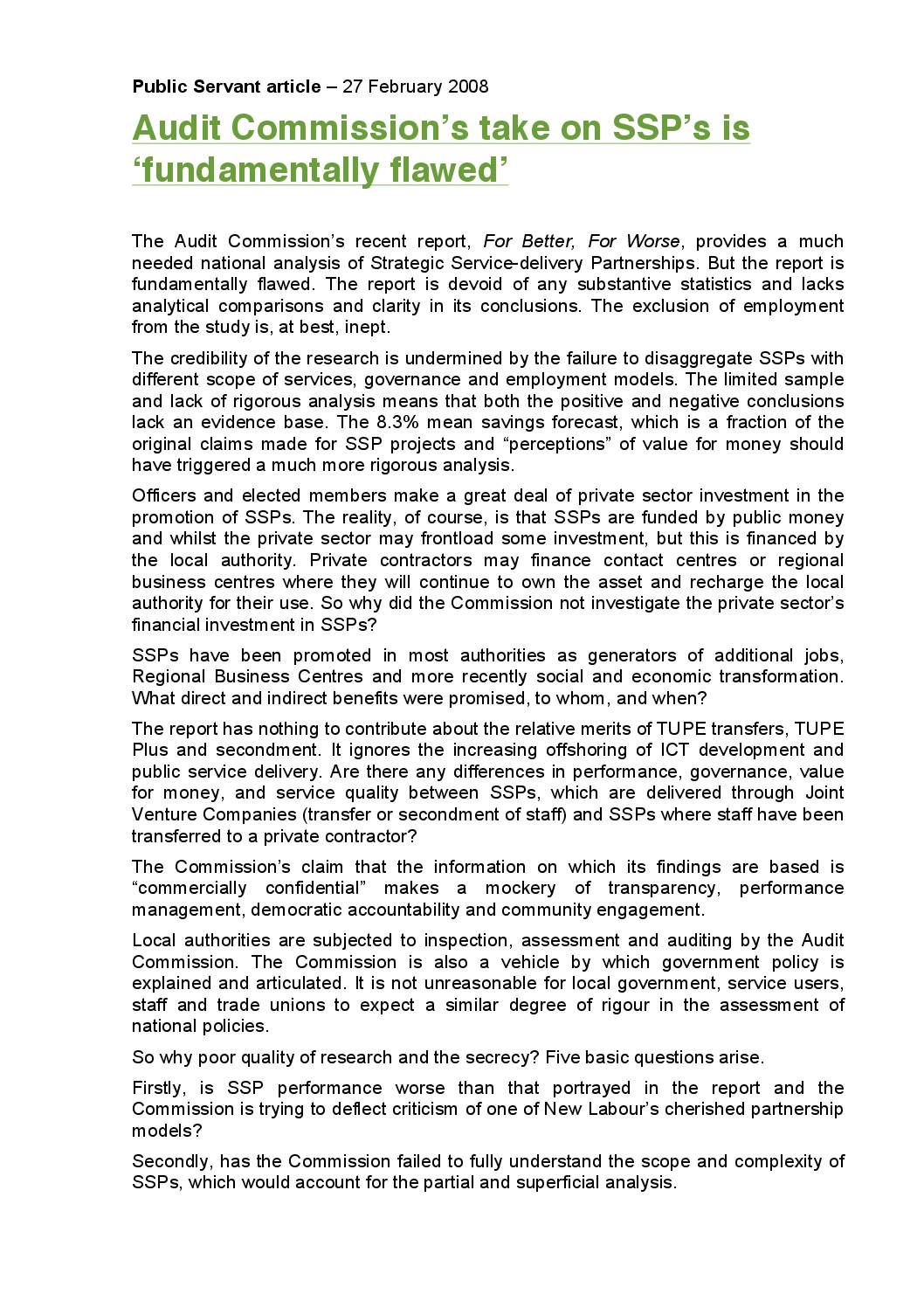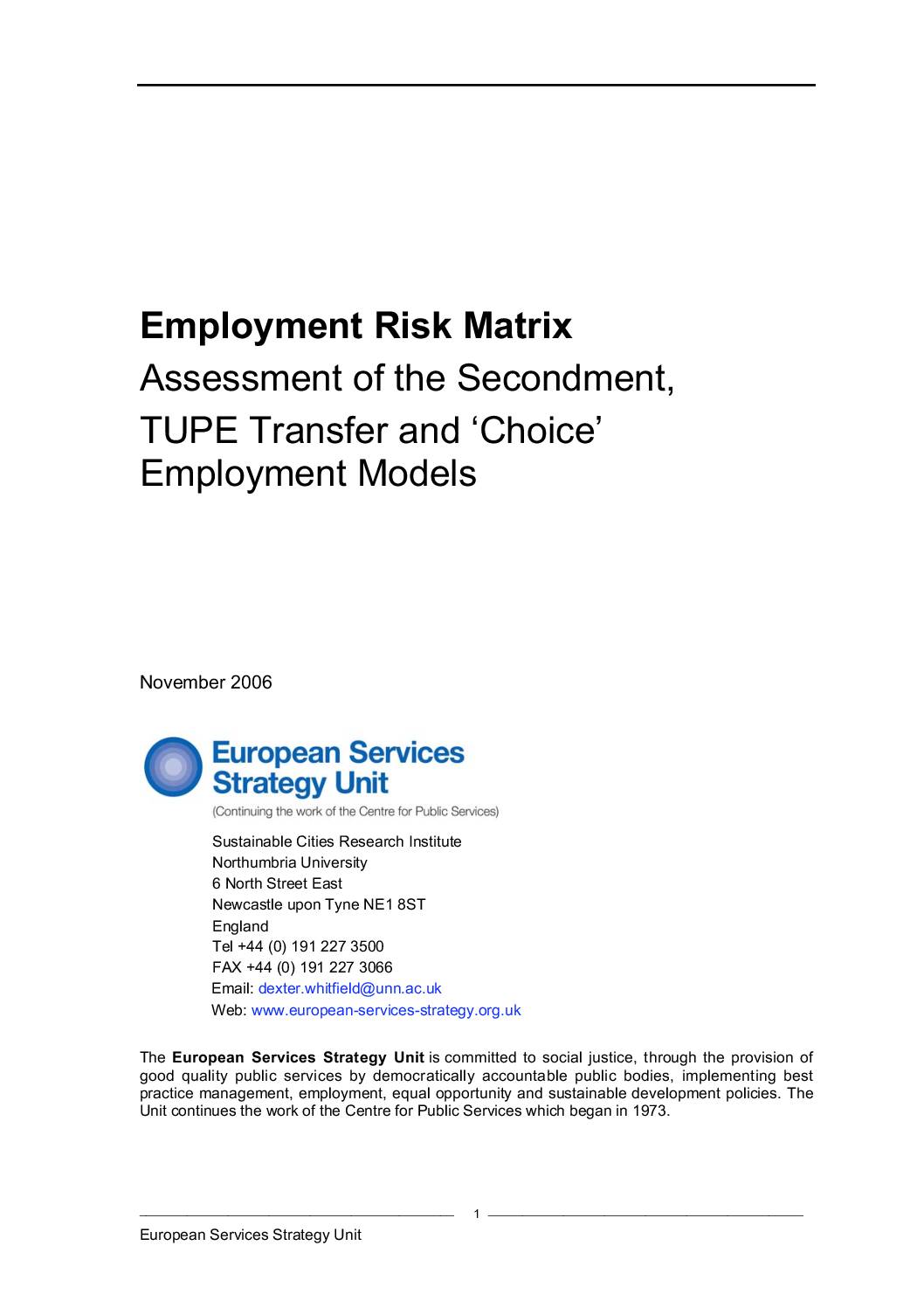Range of additional reports and briefings by ESSU and Andrew Morton.
ESSU Reports and Briefings
Published on 22nd March 2004. Last updated 6th June 2017.
-

EU Reform of transnational Posted Workers law and the place of working rights and collective agreements within the Single European Market: European Public Services Briefings 5: by Andrew Morton
The Posted Workers Enforcement Directive and the ‘Monti II’ Regulation: The temporary posting of workers to a member state other than that to which they are based has brought together a complex set of social, economic and regulatory issues within EU law. This paper examines the conflicts of free movement and social rights and the…
-

European Public Services Briefing 4: European Union Public Procurement Law, the public sector and Public Service Provision, Andy Morton
In the mid-1980s, prompted by the passing of Single European Act, the European Union embarked upon an ambitious programme of liberalisation to complete the Single Market. This included the opening up of many national industries to pan-European competition. EU public procurement law has been a crucial pillar to this agenda as EU institutions have sought…
-

European Public Services Briefing 3: A Single European Market in Healthcare: The impact of European Union policy on national healthcare provision, Andy Morton.
Examines the recent Cross Border Healthcare Directive, the role of the European Court of Justice and the ‘Europeanisation of Healthcare’. The introduction of EU law into healthcare presents many problems. The most pressing being that EU institutions have sought to apply the ‘economic’ rights enshrined in the EU Treaty’s free movement law to national healthcare…
-

European Public Services Briefing 2: The Impact of European Union Competition Policy on Public Transport Policy and Provision in the UK, Andy Morton
In the last thirty years public transport services throughout Europe have been subjected to various sorts of privatisation. Reforms introducing competition and market rules into public transport have challenged the public service ethos that these services operate under. The role of successive UK governments in these reforms is well understood and documented. However the role…
-

European Public Services Briefing 1: European Union Competition policy and the Liberalisation of Postal Services, Andy Morton
The European dimension to postal sector liberalisation is often overlooked as successive UK governments have pursued the liberalisation route for its universal postal service: the Royal Mail. Postal sectors in Europe, traditionally dominated by public sector monopolies, have been progressively opened up to increased competition courtesy of European Union (EU) directives, introduced since the mid-1990s…
-

Democratic Governance and the Future of City Regions
The five-part Discussion Paper begins with a new mapping of public sector bodies and organisations based on a privatisation of governance typology. The next chapter discusses New Labour’s modernisation and the neoliberal agenda. Chapter three examines the effect of different elements of the government’s public sector transformation strategy on democratic governance such as the changing…
-

Public Private Partnerships: Confidential ‘Research’, A Critique of the Audit Commission’s study of Strategic Service-delivery Partnerships by Dexter Whitfield
A highly critical assessment of the Audit Commission’s recent report, For Better, For Worse, on Strategic Service-delivery Partnerships. It finds ten fundamental flaws ranging from inadequate methodology, no evidence base, employment issues ignored, no audit of private sector investment and no comparison of an alternative in-house approach. The Commission’s claim that the information on which…
-

Shared Services Strategic Framework
A strategic approach to developing shared services projects based on a progressive approach, principles for shared services, a public sector shared services strategy, democratic governance and accountability, an evidence-based methodology, quality jobs and comprehensive appraisal criteria and impact assessment. (May 2007)
-

Employment Risk Matrix
A revised version of the Risk Matrix assesses the risks of secondment, TUPE and TUPE Plus transfers when assessing employment impacts in outsourcing and privatisation options (March 2010).
-

The Case for a Positive Public Duty on Age Equality
This report examines the operation and impact of existing public duties in Scotland, Wales and Northern Ireland and the UK Duty on Race, specifically in light of the desirability or otherwise of a Public Duty for Age Equality either as part of a Single Equalities Act or a separate piece of legislation. It also seeks…

